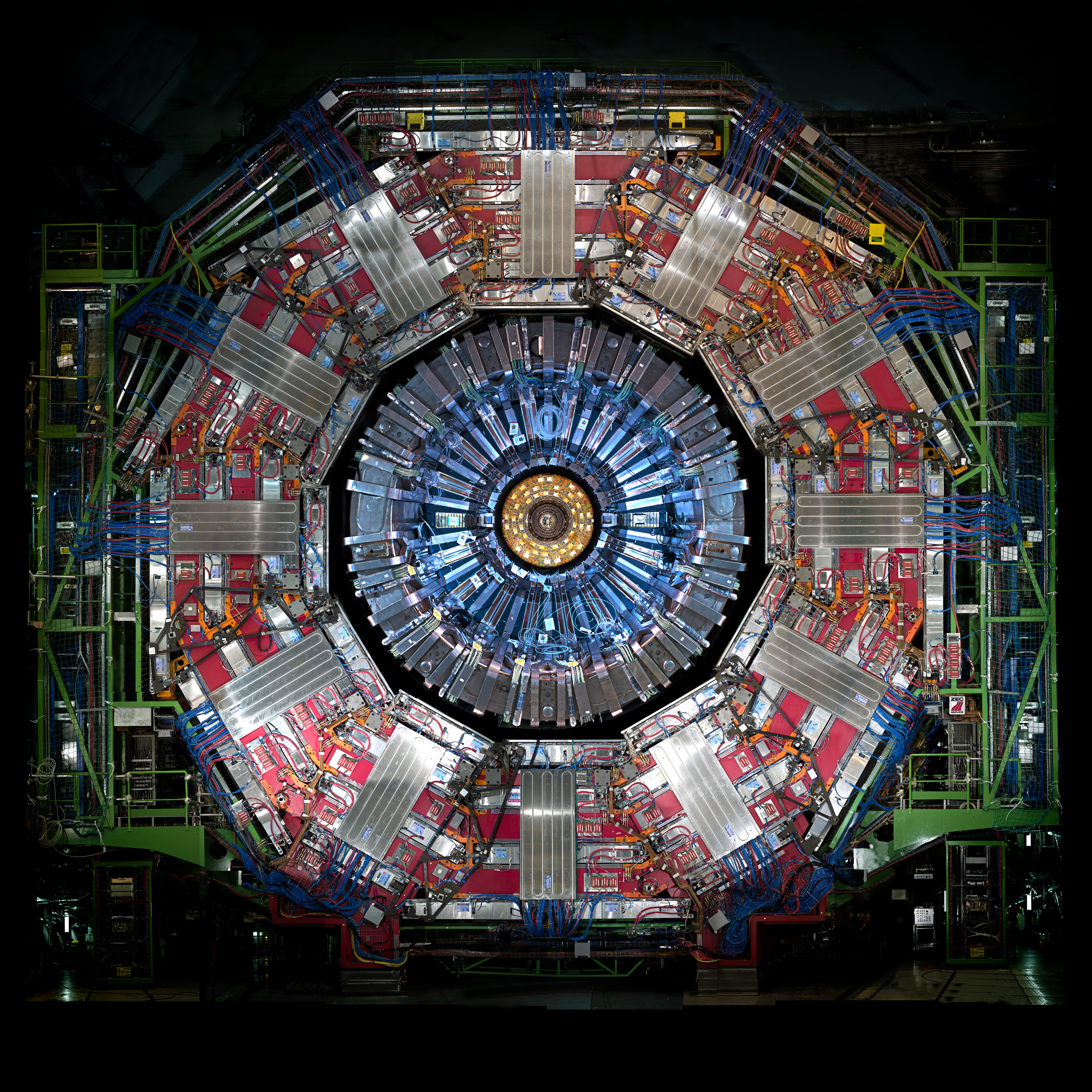
Call for Expressions of Interest for the H2020 Innovation Pilot on detector technologies at accelerators
Daniela Antonio, 11/06/2019

A cross section of the open CMS detector. (Image: CERN)
CERN is supporting and coordinating the preparation of a proposal for an Innovation Pilot on detector technologies at accelerators. Interested institutes and laboratories are invited to submit their Expressions of Interest (EoI) for future detector R&D activities by 15 July 2019. The goal is to set the foundation for a proposal to a new funding instrument launched by the European Commission. In case of success, these activities could lead to a follow-up to the AIDA-2020 initiative.
This European Commission call for an Innovation Pilot, to open from November 2019 to March 2020, will be targeted towards advanced communities that have reached a high degree of integration at European level under previous Framework Programmes. Three communities – in the domains of lightsource technologies, accelerator technologies, and detector technologies at accelerators – will be invited to submit proposals.
The H2020 Innovation Pilot will fund Joint Research Activities and Networking Activities by research infrastructure networks, aiming to implement a common strategy for technological developments in partnership with industry. Proposals should involve research infrastructures, industry and companies (as beneficiaries or sub-contractors) to promote innovation, knowledge sharing, and the co-creation of technical solutions needed for the operation or improvement of services, or new services at research infrastructures.
All participants of the new Innovation Pilot on detector technologies are expected to contribute with matching resources – read more details in the Guidelines for the Submission of an Expression of Interest.
The new project will encompass extensions of activities that are part of the ongoing AIDA-2020, with demonstrated benefit for the community and well-identified novel elements, as well as new activities that are not presently supported under AIDA-2020. For example, silicon, gas and cryogenic detectors, calorimeters, mechanics and cooling, electronics, software, test beam, irradiation and test facility equipment are presently supported under AIDA-2020, whereas other areas, such as particle identification and precision timing systems, near detectors for long-baseline neutrino experiments, and machine learning could be topics for further study.
The Innovation Pilot should eventually demonstrate synergies and complementarities with the ATTRACT initiative. In order avoid double funding, projects among the 170 that have been awarded a grant under ATTRACT Phase 1 cannot submit an Expression of Interest. Projects that aim at developing new detector technologies for use and applications outside of high energy physics should consider applying to the subsequent phases of ATTRACT.
- Please make sure to read the Guidelines carefully.
- The template for the submission of the Expression of Interest can be found here.
- Submissions and questions should be sent to detector-innovation2020@cern.ch
